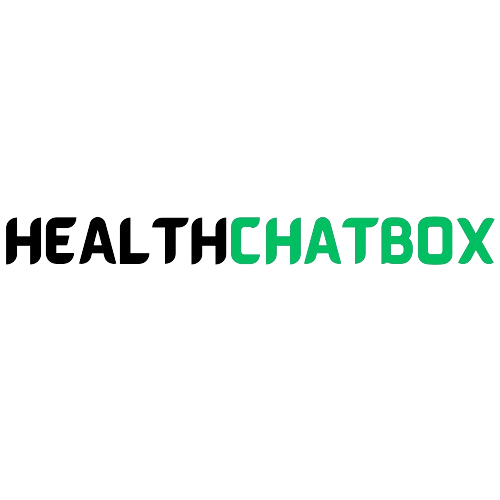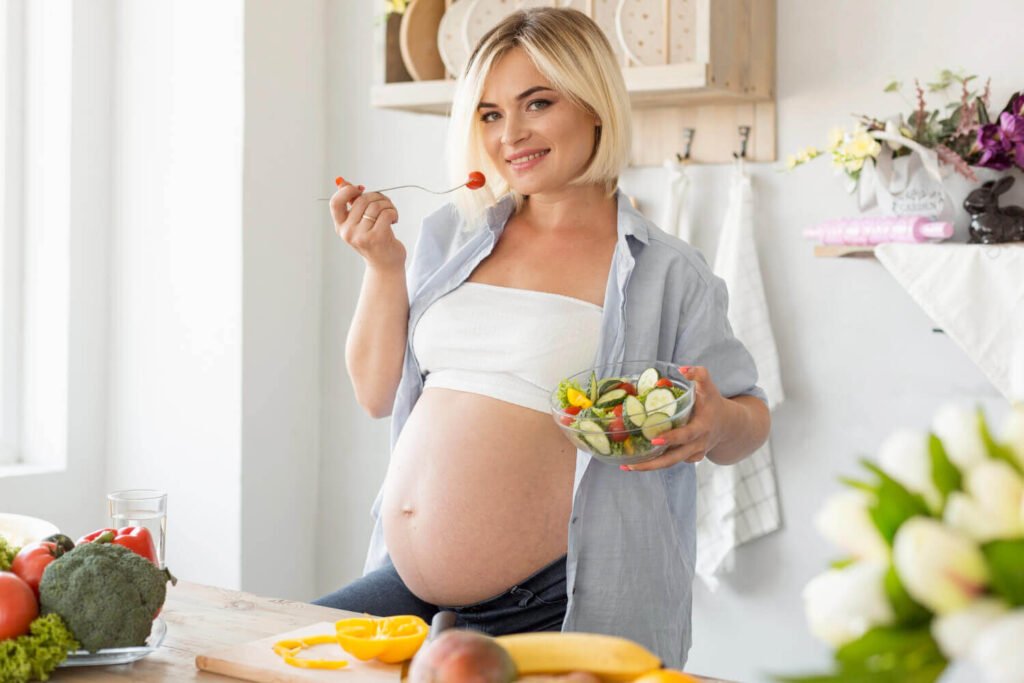List of Foods for Pregnant Women
During pregnancy, you should consume more than normal. At this time, it is very vital to incorporate a balanced, healthy, and nutritious food into your daily routine. A balanced diet is essential for the baby’s normal formation and growth in the womb, as well as preventing a variety of health concerns.
What should be the diet during pregnancy?
It is not advisable to include more of the same foods in the diet during pregnancy. Be sure to eat a variety of nutritious foods throughout the day. This will make it easier to meet all the nutritional needs. Also, you won’t get bored of any food.
During pregnancy, you may develop a stronger taste for certain foods. Don’t eat too many of these foods together. Try to eat in moderation.
Some people experience aversion to food during pregnancy. Sometimes there is nausea and vomiting, and you may not want to eat. In such cases, you can eat small meals six times a day instead of three large meals.
During pregnancy, it may not be possible to meet your nutritional needs with nutritious foods alone. Along with a balanced and nutritious diet, it is important to consume some important vitamins and minerals to protect your and your baby’s health.
How much should you eat during pregnancy?
Diet for pregnant women from 1 month to 3 months
Overeating is unnecessary during the first trimester of pregnancy. Your food consumption and calorie requirements will be determined by a variety of factors, including your height, weight, and level of physical activity. As your weight grows, you might strive to eat less and exercise more.
If your weight decreases, you can increase the amount of food by exercising normally. Ask your registered dietitian about this. They will be able to help you prepare a menu specifically for you.
Below is a sample of the daily diet for a pregnant woman. This list is for 1800 calories. This list applies to women who are 5 feet 2 inches tall, with a pre-pregnancy weight of 55 kg, and do light exercise 2-3 days a week.
- Rice (preferably red rice) – 2.5-3 cups (500-600 g)
- Dark green and colorful vegetables – 1-1.5 cups (250-375 g)
- Yellow or orange fruits and vegetables – 1 cup (250 grams)
- Egg – 1 piece
- Milk – 1 glass (250 grams)
- Meat or fish – 1 piece (50 grams)
Note that a limited amount of oil is used when cooking the dishes on this list. Consuming too much cooking oil can increase your calorie intake but doesn’t necessarily make your food more nutritious.
Diet for pregnant women from 4 months to 9 months
As the baby grows in the womb, the food demand of the pregnant woman also gradually increases. Therefore, after the first trimester of pregnancy, the amount of food should be slightly increased. A normal-weight woman who is 4 to 6 months pregnant needs to eat about 340 calories more per day than in the first trimester.
On the other hand, a normal-weight woman who is 7 to 9 months pregnant will have to eat about 450 calories extra compared to other times. However, if you are overweight, you need to eat less and ask your doctor for more information on this.
Note that if you have twins or more than two children in your womb, it does not mean you have to eat more food accordingly. A pregnant woman needs about 600 extra calories per day to feed her baby. When you have three children, you need to eat an extra 900 calories a day.
What should not be eaten during pregnancy?
Eating too much oily and spicy food during pregnancy is not advisable. Cookies, cakes, pies, and pastries, for example, are low in nutrients and may include saturated or unhealthy fats. Consuming too many of these foods might cause weight gain and raise the risk of heart disease. Furthermore, consuming too much sugar might contribute to tooth decay.. Complications can occur for both the mother and the baby. These foods include:
- Butter
- Ghee-Dalda
- Cream
- Chocolate
- Fried foods
- Chips
- Biscuits
- Cake
- Pastry
- Ice cream
- Pudding
- Soft drinks
Certain meals should be avoided entirely. The following foods can be detrimental to your baby:
- All meals made with unpasteurized milk, including dairy from cows, goats, and sheep.
- Raw or undercooked seafood, meat, eggs, and milk.
- Sushi is a dish made with raw or undercooked seafood.
- Sausage, salami, and pepperoni are some examples of uncooked or processed meat.
- Excess caffeine, such as coffee, tea, and energy drinks
- Alcohol or other drinks
- Any food that you are allergic to, such as peanuts
- Herbal or alternative medicine
Avoid eating too much liver during pregnancy. The liver contains a lot of vitamin A, and excess vitamin A is harmful to the baby in the womb. However, occasionally (e.g., once a week or less) 50-70 g of cooked liver may be consumed. Consuming this amount of liver is not a risk factor for the unborn baby. The liver is a good source of folic acid and iron, which are important for pregnancy.
What to eat during pregnancy?
During pregnancy, you must consume six types of food every day, which are:
- Carbohydrate-rich foods, such as bread and rice
- Dark green and colorful vegetables
- Colorful fruits and vegetables
- Eggs
- Dairy foods
- Meat, fish, and pulses
In addition, consume any form of sour fruit every day. Examples include oranges, lemons, olives, gooseberries, hog plums, and strawberries. They include vitamin C, which promotes the health of your baby’s skin, blood vessels, and bones,It also assists the body in absorbing iron.
Carbohydrate-rich foods
It is essential to include carbohydrates in the diet to meet the extra-calorie needs of the mother’s body during pregnancy. Some of these foods are:
- Rice
- Bread
- Cereal or cornflakes
- Noodles and pasta
- Maize
- Oats
However, it is better to eat whole-grain cereals (such as red rice and red flour) and potatoes with peels rather than processed sugars (such as white rice and flour). This preserves the nutritional value and fiber content of the meal. Fiber plays an effective role in preventing various complications, including constipation, during pregnancy. Aim to receive at least half of your carbohydrates from whole grains.
Fruits and vegetables
Consume at least five servings of fruits and vegetables every day and These fruits and vegetables meet the need for various important vitamins and minerals during pregnancy. Carotene is found in colorful fruits and vegetables, which helps in the normal growth and development of the baby. Also, fruits and vegetables are the main sources of dietary fiber, They help in digestion and prevent constipation. Vegetables and fruits can be consumed raw, cooked, fresh, or frozen in any form. Be sure to rinse them thoroughly with clean water before eating.
Foods rich in proteins
You need to eat enough protein during pregnancy for your baby’s growth and development. Some of these protein-rich foods are:
- Fish
- Meat
- Eggs
- Milk
- Pulses
- Beans, peas, and lentils
- Almonds
However, while consuming fish, meat, eggs, or milk, be sure they are well cooked. Undercooked food can allow bacteria to enter your body, causing diseases in both you and your baby.
Meat
Consume lean meat and chicken without skin. Avoid eating liver regularly. Try not to use too much oil while cooking. When preparing any form of meat, make sure it’s well done and Do not consume undercooked or uncooked meat.
Fish
Try to eat at least 281 grams of fish per week during pregnancy. In a week, six pieces of big fish or one and a half bowls of small fish curry will roughly meet this amount. Half of this amount should be oily fish. Fish oil is rich in omega-3 fatty acids, which prevent premature birth and reduce the risk of serious complications, including infant death. Don’t eat more than 280 grams of oily fish per week, as these fish often contain small amounts of contaminants (such as mercury) from the water. Excessive consumption can allow these contaminants to enter the body, affecting the baby’s growth.
Milk
It is important to consume milk or other dairy products (such as cheese and yogurt) during pregnancy. Milk is high in calcium and other minerals, which aid in the formation of your baby’s bones and teeth. However, it is preferable to eat low-fat or fat-free dairy products. Examples are 1% fat milk, skim milk, and low-fat, low-calorie yogurt. You can also consume low-fat cheese. Do not consume raw or undercooked milk or dairy products.
Water
A healthy pregnant lady should consume 2-3 liters of water each day. Drink 8-12 glasses of water every day. However, if you have any specific advice from your doctor, follow it.
Vitamins and other nutrients
It is not possible to meet all the nutritional needs during pregnancy by eating nutritious food alone. Therefore, it is necessary to take tablets of some additional nutrients. Some of these nutrients are:
Folic acid
You must take 400 mcg of folic acid pills daily from the moment you begin trying to conceive until three months after giving birth. Folic acid enhances brain development and protects against a variety of birth abnormalities.
Iron From the beginning of pregnancy to the third month after delivery, it is necessary to
take 60 mg iron tablets. Iron helps prevent anemia in pregnant women and reduces the chances of complications such as premature birth and low birth weight.
Calcium
Calcium tablets should be taken twice a day from the first three months of pregnancy. It is best to take calcium tablets after meals.
Additionally, many other nutritional supplements, including vitamin D and vitamin C, may need to be taken on the advice of a doctor for various needs.
How to prepare food for pregnant women?
Various types of microbes can enter the mother’s body from food, which can adversely affect the health of both the mother and the baby. Therefore, you need to be careful when preparing food during pregnancy to keep the food clean and healthy. Here’s what you can do:
- Wash all fruits and vegetables thoroughly with clean water before cooking and eating raw to remove any dirt (such as soil particles).
- Be sure to wash plates, dishes, and cooking utensils thoroughly with soap, dishwashing liquid, or detergent after cutting, washing, or cooking raw foods (such as fish, meat, eggs, shellfish, and vegetables) , Finally, completely cleanse your hands with soap and water.
- Use separate knives and cutting boards for cutting raw fish and meat.
- Separate raw and cooked food in the refrigerator and store them at the right temperature in sealed containers or packets (e.g., ziplock bags).
- Do not eat food brought from outside or cooked food without heating it properly after taking it out of the fridge.
- Do not store food in the fridge for a long time. Try to eat fresh food.

